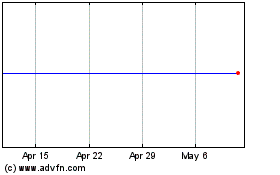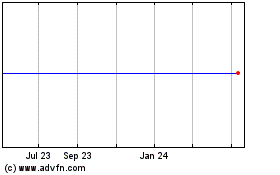UPDATE: Oil-Rig Workers Describe Safety Issues, Criticize Transocean
May 27 2010 - 1:43PM
Dow Jones News
Two Transocean Ltd. (RIG) workers who were aboard the Deepwater
Horizon oil rig when it exploded told a U.S. House of
Representatives committee Thursday that there were safety issues
with the rig before the disaster.
The father of a worker killed on the rig, meanwhile, urged
lawmakers to allow the families of the 11 workers who died to sue
the responsible companies for punitive damages.
In testimony before the House Judiciary Committee, Douglas
Harold Brown, the chief mechanic and acting second engineer on the
rig, said Transocean, the rig's operator, had reduced the number of
crew members in the engine room from six to three, which put rig
personnel behind in completing their preventative maintenance. One
worker was eventually added back but "that still left us two people
short," Brown said.
"I and others complained that we needed more help," he said,
adding that the company's response always was, "We'll see what we
can do."
Brown said there was chaos on the rig following the explosion:
"People were crying and screaming that they did not want to
die."
He said he suffered leg and head injuries and was also suffering
from post-traumatic stress disorder, with nightmares and
flashbacks.
In his separate written testimony, Brown said he was treated at
a local hospital and then taken to a hotel where, he said, "I was
then immediately taken to a room and interrogated by two lawyers
from Transocean in front of a court reporter."
Stephen Stone, a general laborer on the rig, told the committee
that the blowout of the well "was hardly the first thing to go
wrong."
He said the rig employees had to pump down a heavy-duty sealant
compound four times in 20 days to seal cracks in the underground
formation.
Stone said after the blast a Transocean representative asked him
to sign a document saying he was not injured in order to obtain
$5,000 for the loss of his personal possessions.
"I never would have expected for my company to treat me like a
criminal after I had survived such a disaster by making me submit
to a drug test, and then try to tempt or trick me into giving up my
legal rights by signing forms without a lawyer present," he
said.
The father of Gordon L. Jones, a M-I Swaco mud engineer who was
killed in the blast, said it was offensive that current law only
allowed the victims' families to recover money from the companies
for the economic damages they suffered, such as loss of income.
"Payment of punitive damages by wrongdoers is the only way they
may learn," father Keith D. Jones said, his voice quivering with
emotion.
"If you want these companies...to make every effort to make sure
their employees don't act as these did, putting American lives at
risk, you must make certain that they are exposed to pain in the
only place they can feel it--their bank accounts."
Thursday's hearing featured testimony from 11 witnesses,
including representatives from BP Plc (BP, BP.LN), Transocean,
Halliburton Co. (HAL) and Cameron International Corp. (CAM).
-By Brent Kendall, Dow Jones Newswires; 202-862-9222;
brent.kendall@dowjones.com
Cooper Cameron (NYSE:CAM)
Historical Stock Chart
From Jun 2024 to Jul 2024

Cooper Cameron (NYSE:CAM)
Historical Stock Chart
From Jul 2023 to Jul 2024
